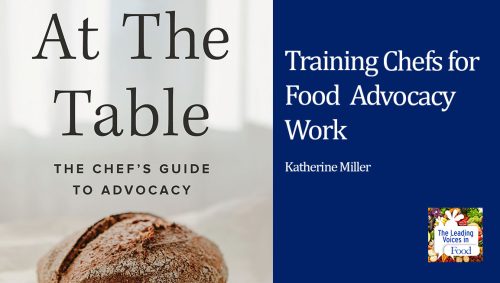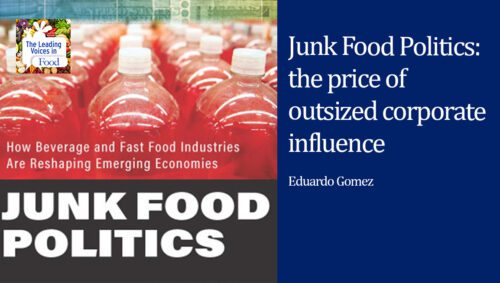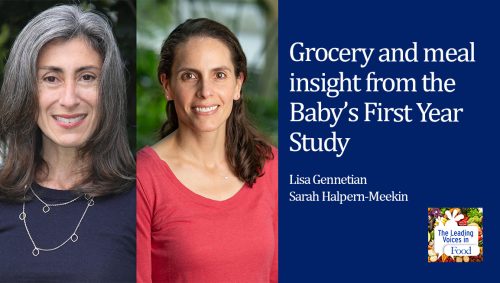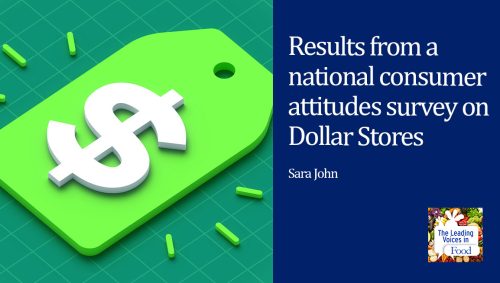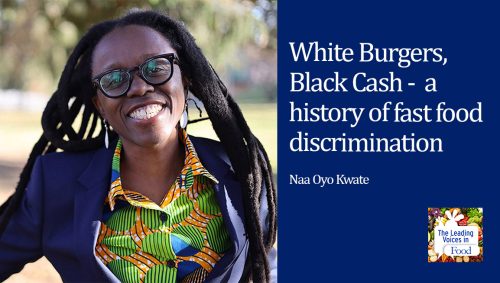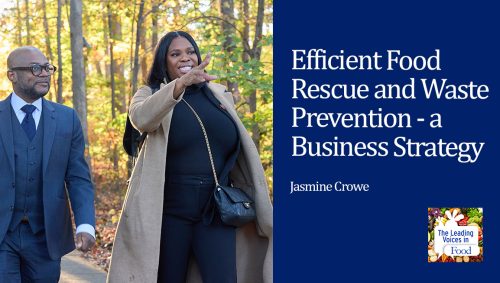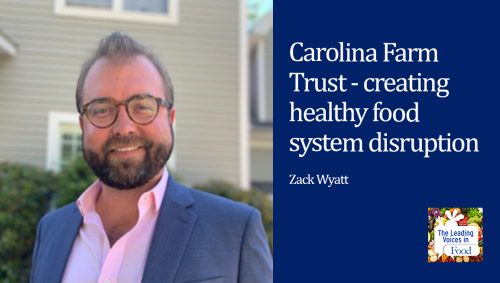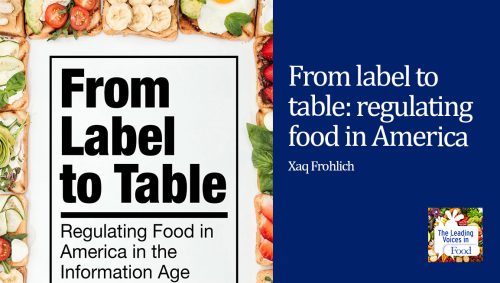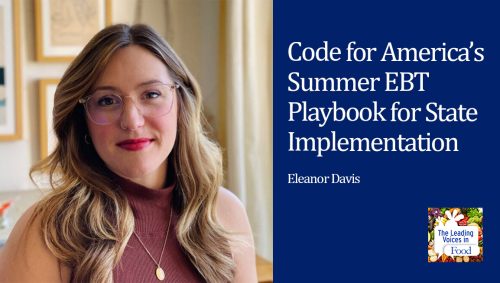E192: How to achieve food equity with SNAP
Today we’re speaking with coauthors of a new report by the Center for Law and Social Policy, entitled “A Community-Driven Anti-Racism Vision for SNAP.” Senior policy analyst, Parker Gilkesson, and community organizer, Tamika Moore, argue that although public benefits such as the Supplemental Nutrition Assistance Program provide critical care and support for families with low incomes, they also reinforce racism and structures of oppression.
Subscribe: Apple Podcasts | TuneIN | Google Podcasts | SoundCloud | PocketCasts | Radio Public
Tags: Advocacy & Food | Diet & Nutrition | Equity, Race & Food Justice | Food Insecurity | Food Policy | Social Safety Net & Food |

Parker Gilkesson is a senior policy analyst with the Center for Law and Social Policy’s Income and Work Supports team. She specializes in work support programs for people with low incomes and focuses on the Supplemental Nutrition Assistance Program (SNAP). Parker is a subject matter expert in social policy, benefit eligibility, human services delivery, racial equity, community partnership, and state and local policy regarding SNAP, Temporary Assistance for Needy Families (TANF), and Medicaid. She has been quoted in TIME Magazine, New York Times, National Public Radio, The Hill, and many more. Prior to joining CLASP, Parker began her career as a human services specialist in Mecklenburg County, NC. In this role, she worked directly with people to determine their eligibility for Medicaid, TANF, and SNAP. Parker earned a Master of Public Policy degree, with a concentration in public administration, from Liberty University and a bachelor’s degree in health education, maternal and child health from Howard University. Parker believes all policies should be grounded in the wisdom and experiences of those directly impacted by them. Therefore, she has worked to co-create a community of shared learning that highly regards lived experience as necessary expertise in the quest toward equitable policy solutions. Parker is passionate about systemic change that addresses root causes to eventually eradicate poverty and inequities in the health and social welfare of our nation’s residents.
Tamika Moore is a New Jersey native who has spread her passion for youth empowerment through her non-profit organization VisionWorkz. Her mission is to help guide, inspire, and empower LGBTQ youth to see their true potential and value. She pushes to provide healthy and safe avenues for teens and adolescents to release their emotions on a creative and functional basis. Tamika has travelled the East Coast delivering her global vision of bringing the input of young people to the forefront for legislative changes involving education, programs for teens, and poverty. Tamika contributed to the LGBT curriculum in New Jersey and believes in helping to establish core values like financial literacy and professional development to help kids feel secure about themselves and their future.
Interview Summary
As I was mentioning to both of you before we started recording, this is a really interesting perspective, and it needs to be aired more. I’m glad we’re playing a role in that. Parker, let’s begin with you. Can you tell our listeners, what you’re hoping to accomplish with this report?
Parker: So I was a social services worker for the State of North Carolina, and that is where a lot of my thoughts around policy, particularly pertaining to public benefits, arise. I saw so much while working there. I recognized that the systems in place often are framed as race neutral. They are set up to help people, however, there are multiple barriers put in place that particularly harm people of color. It was really important to me when I began my journey at CLASP, to figure out how we could bring along folks who have deep expertise. People who actually have received and been recipients of the program themselves. They are the experts. And so, that is what led me to bring together folks to create the Community Partnership Group, who wrote this report along with us, and which Tamika is a part of. It’s super important to really set the tone for community driven vision for what the SNAP program can be. Obviously, just based on different systemic roots, the program currently, innately, is not anti-racist, even though it does help people and helps people of color as well. We talk about multiple barriers in the paper, what we want to grow, what we want to eliminate, we want to make better, so that it better serves people and moves on the journey to becoming more anti-racist.
Let’s talk in a little more detail about something that you just mentioned, which was the importance of the partnership between your center, the Center for Law and Social Policy, the staff there, and people with direct lived experience of people in the communities that are most affected by these programs. And you’ve created something called the Community Partnership Group. So can you tell us a little bit more about that group and why is it so important?
Parker: So the Community Partnership Group is a diverse collective of activists from across the US. They partner with us, other nonprofits, administering agencies, and policy makers, to ensure that whoever they’re working with, the work is grounded in the expertise of people who are directly impacted by poverty. This group is small but mighty. We work together on multiple issues. Tamika works on youth issues. We have other folks who work on housing. We’ve been meeting together over the last two years. It was definitely something different for a CLASP to embark upon. It had not been done before, where we wanted to deeply engage with folks to really shape our minds around what policy changes could look like. And to do it in a way that wasn’t transactional, that wasn’t, “We’re just going to consult with you all on this one off project.” Or, “We are just going to create something and bring it back to you all for your advice,” versus helping them to be a part of the process. I’ll push it over to Tamika to talk a little bit about her experience with this.
Tamika, I’m glad that we can hear from you on this. So what are your thoughts on this issue of a partnership and working together with a group like CLASP?
Tamika: It has been nothing short of incredible. They are extremely supportive. Our entire group is extremely supportive. I’ve been a part of the Community Partnership Group since its inception in 2020. I do youth empowerment work as well as anti-hunger work. I am a lived experience expert, someone that has gone through and used these programs, and been street homeless, and lived in my car, and I’ve utilized these programs over a course of several years. I don’t anymore. But I have plenty to say about them and how these different programs and different pieces of legislation that affect these programs can be updated and changed to actually benefit the people that’s supposed to benefit. Being a part of this and having this partnership with CLASP, with everyone else in the CPG group, has been an incredible journey.
It’s really nice to hear from both of you that this partnership is working so well. These partnerships don’t happen all that often. It really takes, I know from our own experience, a lot of work by all parties to make these successful. So congratulations for doing something pretty unique and important. So Tamika, back to you. Could you share some historical examples of what you see as institutionalized racism built into the SNAP program?
Tamika: We can find institutional racism across the board when it comes to the SNAP program. From different neighborhoods that need the SNAP program and that are impacted by different policies that block individuals from receiving SNAP benefits, such as the drug felon ban, to gatekeepers that are hired and are supposed to approve, disapprove the benefit to the participant. These individuals, their training, affect the lives of people that they’re supposed to be assisting. The foods that are available in these neighborhoods, what’s available and accessible in the neighborhoods that mainly receive SNAP benefits, which are obviously disproportionately, black and brown communities, communities of color. Not having access to hot foods, which is just a policy issue in and of itself. But not having access to nutritious foods, like fruits and vegetables, in these neighborhoods that receive the SNAP benefits. Not receiving enough of a SNAP benefit to even benefit the way that you’re supposed to and be able to feed your family, is another one. There’s just so many different ways that this affects the SNAP policies and SNAP benefits.
Let me ask you a follow-up question about that. You’ve given a lot of examples and I really appreciate that. Can you tell us a little bit more about how individuals experience interacting with the system? How does it make people feel to interact with such a system, and does this affect people’s willingness to engage with the SNAP program? Or does it affect, you think, the number of people who are eligible, who enroll in the program? What’s it like?
Tamika: A hundred percent. I can say from personal experience. I was homeless for a period of time before I applied for benefits myself because there’s such a stigma attached to receiving these benefits. That you’re lazy, that you don’t want to work, that you’re a bum or a whatever other derogatory terms. I’m sure you’ve heard them, we all have. Or you’re on drugs, or you’re an addict of some kind. Anything and everything. But that’s simply not the case. I wasn’t on drugs, I didn’t have any children, no one could say, “Oh! You know.” But there’s such a stigma attached to it, it keeps a lot of people from applying. And then when you do apply, you’re in this place where there’s so many people that are needy, that are in the position that you’re in. And it’s a re-traumatizing system, to have to tell someone your story, first of all, that you don’t know. Tell them what’s going on in your life, and actually admit to the fact that you can’t provide for yourself and that you need help. But to have to go from that person to another person, to another person, to another person, and actually hope that these people care. They’re dealing with a number of people throughout the day, so it’s stressful on them as well. But to actually talk to somebody that cares about what’s going on in your life, that wants to help you, which is not something that happens often. Unfortunately, I was homeless for seven months before and I went through three social workers before I got to someone that actually told me how I could help myself. This is why I call them gatekeepers. Because they are the individuals that ultimately have an effect on whether you receive this assistance that you need so badly, or whether you don’t and you continue to struggle.
It’s not a great process. It needs to be updated, it needs to be streamlined in every state so that you don’t have to be re-traumatized every time you have to go in there. You don’t have to re-qualify. Every time you have to re-qualify, you have to worry about losing your benefits. You’re threatened by letters and stuff that you receive when it is time for re-qualification. I mean, it is so hard to explain without becoming relatively emotional, but it’s a terrifying process when we’re supposed to be helping people. These are our people, and we’re supposed to be helping them and lifting them up. Instead, we’re threatening them every step of the way. If you lie about this or if you misspeak about this, there’s public charge associated with so many different parts of this process as well. And you’re just like, “I don’t know what to say.” So you don’t say anything, and you don’t get the benefits that you could have gotten. There’s so many different parts of this. It’s just not a great process. It’s not a fun process, it’s not a good process. It needs to be revamped.
Tamika, I appreciate you sharing that, and I’m sorry that I’ve asked you to relive it yet again. But it really helps, I think, paint a picture of what it’s like to interact with a system like this and how traumatizing, re-traumatizing, and difficult it can be. So thank you very much for sharing that. Parker, why don’t we dig into the report recommendations? Can you describe to our listeners, what you believe the key points in the recommendations are?
Parker: We have multiple recommendations that fall into different buckets. The main thing that we want, is that SNAP should absolutely be available to all who need it. Meaning, remove any barriers for folks who like Tamika mentioned earlier, who have been formally incarcerated students, immigrants. Even some indigenous populations who receive another food program that’s full of canned foods and not fresh foods, if they received at that month, they aren’t able to receive SNAP. That’s not fair. Also, residents of Puerto Rico. There are multiple different policies right now that prevent different groups of folks from being able to receive benefits. So we want to make sure that it’s available to all who need it.
We also want to make sure that it’s sufficient enough to meet the needs of community members. So we want to make sure that, number one, we protect the Thrifty Food Plan. Although it’s the lowest level food plan, they just reevaluated it last year, and we want to protect that. We know that there are multiple legislators that want to come against it. We know that the SNAP program does help folks, and we want to protect the good changes that have happened. But we also know that we need to increase overall SNAP benefits. Right now, currently per person, it is around $5 per day. $5 per day, so that’s around a dollar and 33 cents per meal. I don’t know anywhere that you can get a meal for $1.33 cents. So folks are having to make difficult decisions about what type of food they want to provide for their families. We think about food policing, and telling folks they can’t buy sodas with their SNAP benefits, or they can’t buy sugary foods, or they can’t buy chips and all these different things. But the reality is that, to stretch someone’s SNAP benefits to make sure that their families feel full, we can’t talk about nutrition, and we can’t talk about healthy foods without talking about increasing the benefits. Because at that point we’ll be blaming people for the difficult choices that they have to make, instead of recognizing that the SNAP benefits just aren’t enough for a sustainable diet. Not only in terms of the cost of food, but also in terms of culturally appropriate foods. In different communities, whether it is Caribbean, African, Latino communities, we use different spices, we use different beans and flavors, and different things that also cost a lot of money. And so, oftentimes the diets that are used to estimate the average cost of food are Eurocentric diets. And so we have to move away from the idea that Eurocentric diets are the only diets that are healthy. That’s not necessarily true. When we look at the more culturally diverse diet, and we add those foods as we estimate the cost, that will help SNAP benefits to go up as well.
In thinking of different dietary needs and different things of that nature, we also want to expand bonus funds for accessing fruits and vegetables. So currently there are multiple programs. One that we talk about specifically in the paper is a farmer’s market benefit where if you have a farmer’s market in your area, you can use double benefits to purchase from the farmer’s market. However, farmer’s markets are seasonal. Farmer’s markets sometimes for different communities are extremely difficult to get to. And so, if we want to encourage fruits and vegetables, and the purchase of them with the SNAP program, we should encourage that by using this benefit across all grocery stores.
And one of our major, major, major recommendations, is about hot foods. This is one that many folks in the anti-hunger community, don’t necessarily jump into but it was super important. The group was really serious about us taking this on to really talk about how the SNAP program should allow people to buy hot and prepared foods. Because it is something that is necessary for folks who have experienced homelessness, for folks who may live in housing where they don’t have a working stove. There are so many different situations that we’ve heard of through doing our research and talking to folks, where if they were able to purchase hot foods with the SNAP program, it would completely and totally change their lives. So I’ll let Tamika jump in here, to talk about our recommendations with hot foods, and also just talking about subsidies, in terms of fruits and vegetables.
Thanks, Parker. I appreciate it. There are a lot of very concrete ideas among your recommendations. So Tamika, what would you like to highlight about the report?
Tamika: So I’m going to start with hot foods, speaking with direct personal experience with street homelessness while I was receiving benefits. I’m first going to address just how dehumanizing it is to tell someone that if you don’t have a stove or a kitchen, that you don’t deserve a hot meal. That’s basically what the current SNAP policy is insinuating, right? Because if you don’t, you can’t. It’s ridiculous to think that someone is homeless and out in the cold in the wintertime, and they can’t go and get a bowl of soup from the corner store or from a grocery store, if they have access to one, or somewhere like that. Or a hot dog or just something that’s hot to warm your stomach. Food should be treated and accessed as a basic human right no matter the disposition of it. And that’s just the fact of the matter. Could you imagine someone telling you that you can’t have something hot to eat just because they don’t want you to use the dollars that they’re giving you for that? It’s incredibly dehumanizing and ridiculous.
And then also as a homeless person, you really can’t budget the same way that you would if you did have access to a fridge, or a refrigerator, or a stove. You can’t go and buy milk because there’s nowhere to put it. Or eggs, or rice; nowhere to cook it. Pancake mix – nowhere to cook it. These are all things that you could use to stretch those dollars for yourself and your family. You can’t do these things. So you actually end up spending more money having to go to corner stores and buy whatever it is that they have at the corner store that you can eat that day rather than being able to cook something for yourself, or buy something that is hot for yourself. One of my colleagues talks about the frozen chicken or frozen turkeys at the grocery store where you could buy a roasted one for $7, maybe 5$, $7 something like that, that’s already cooked. But you can’t buy that. But then you can buy the frozen one that’s $14. It’s just not cost effective either. And like Parker just highlighted, that is what you’re limited to with the SNAP funds.
As a single person in the United States, the benefit right now is about $192 or less. The USDA estimates that for a single person, a single person in the United States, it’s $230 to $420 per month. So the benefit is not enough to sustain you. We know that. Just for a single person, not enough to sustain you. Now going to the corner store, you’re reduced to those foods, which we know is not nutritious in any way. And like I said, more expensive in the long run. Furthermore, it is re-traumatizing to have to go to the store or corner store, whoever or wherever you’re going every day, to ask them to heat something up for you too, because you don’t have access. Being homeless is already a daily battle, mentally, physically, emotionally; a battle. You’re constantly having to fight negative thoughts and feeling unworthy. Having to go and ask someone to heat up food for you because you can’t do it for yourself, it just amplifies those feelings.
I’m so happy that you’re able to lay some of these things out, because these are not stories that everybody has heard.
Tamika: That’s one of the reasons why we’re hearing why it’s important to have someone’s perspective that has experienced these things. It’s important to have people with lived experience in the room when you’re creating policies that affect the individuals that actually experience these things. This is why. This is why. It’s a different effect. If you have never experienced that, I don’t feel like you should be writing a policy that affects someone that does, especially not without direct input from someone that has.


